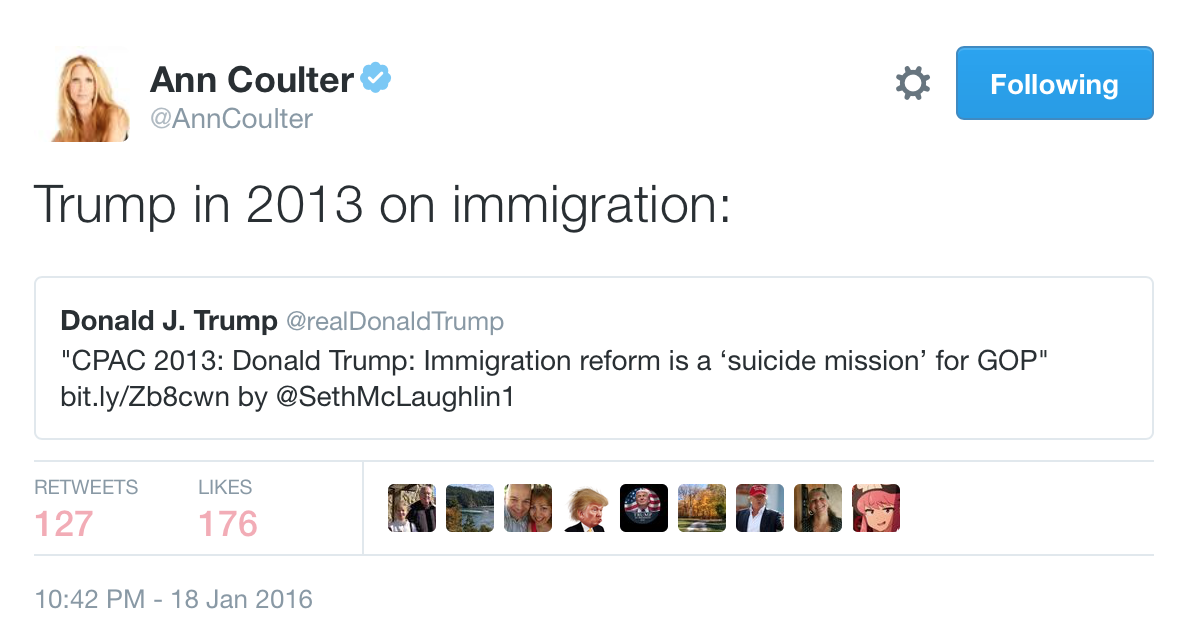In US politics, pro-life people hate Planned Parenthood, and pro-choice people defend it.
Last night in the GOP primary debate, Donald Trump (who now claims to be pro-life, despite past statements that he's very pro-choice) got criticized for his support of Planned Parenthood. After calling Ted Cruz a liar, Trump bizarrely continued by saying that Planned Parenthood does wonderful things, thus freshly demonstrating that Cruz is right.
I've heard a lot of right-wing atheists, like many libertarians, complain about Republican opposition to abortion. It's a big sticking point that lures them leftward. What I don't hear them talk about as much is that Planned Parenthood should not receive taxpayer funding; that violates the proper role of government and taxes. But what I really don't see them saying is that Planned Parenthood is an evil organization.
Contrary to the typical dynamics, I'm pro-abortion and anti-Planned Parenthood.
Planned Parenthood is not just a "neutral organization that provides abortions and other health services", as many people seem to imagine (without having done any research). It's a radical (and powerful) leftist institution which actively promotes evil agendas.
Planned Parenthood was founded by the racist eugenicist Margaret Sanger. Why? Because she disliked human beings. She liked abortion because she wanted fewer black, poor and stupid people to exist. She wanted to control and limit the human population and get rid of the types of people she considered undesirable. She also advocated sterilizing people and contraceptives. Abortion was one more tactic designed to promote the agenda of population control and race purification.
(This stuff is not controversial or seriously disputed. Research it if you're curious.)
The "pro-choice" position is disgusting. The issue is: is abortion murder? To reply to that with "it's a woman's choice" is absolutely stunning. Everyone should find this shocking and appalling.
The only defensible pro-abortion answer could be, "No, abortion is not murder."
I don't want to debate all the details and get into exactly where the line should be, but I will now tell you why I favor abortions in the first trimester:
I don't believe in God or the soul. I consider that mysticism. I look at the issue scientifically.
For murder to take place, there must be a human being which is murdered. I don't think a sperm or egg is a human being. And nor do I think an embryo is a human being.
What would it take for me to believe there is a human being capable of being murdered? At minimum, it would have to have a brain which has some electrical activity. Without the physical existence of a brain, which is doing something, there cannot be a human mind. And without a mind, there's no person. No mind means no consciousness. No mind means no one there to have preferences, to think, to say "I", to want to live.
I've noticed a lot of Democrat politicians say they are "personally against abortion", but want it to be legal. They also say they'd like abortion to be "safe, legal and rare". My question is: why?
If abortion isn't murder, then why are you personally against it? If abortion isn't murder, why do you want it to be rare?
What claims are there about abortion being bad, other than the issue of murder? What anti-abortion ideas do these people believe? In what non-murder way is abortion bad? They never explain and this has never made any sense.
The exceptions that even many pro-life people make to allow abortion are weird. Suppose that human life begins at conception and abortion is murder:
If abortion is murder, why should being raped make murder acceptable? Why should incest justify murder? If that's a human being in the womb, it doesn't matter how it got there, and how unwanted it may be, it's absolutely not OK to murder it.
The life of the mother exception is the only one that makes any sense. If the mother's life is in danger, then you'd have a consideration (a human life) that could actually matter when discussing killing a human being in the womb.
Some pro-life people would ask me: "How confident are you in your science? Do you really want to risk it? What's so great about abortion to be worth the risk that it's murder? Why not just let this issue go?"
The answer is that abortion is important. Having a child is a huge change to the life of the mother and father. Parenting is a really big deal. It absolutely makes enough difference for the abortion issue to be worth exploring.
Not everyone wants to have a child. And people who do want one may want their child later. And that's good. People are right to decide if and when they should start a family. Making good decisions about that is a big deal. Parenthood should indeed be "planned"! It deserves thought, organization, and being with the right co-parent.
Abortion can enable choosing a different person to marry who you get along with better. It can enable finishing your education. It can enable having a savings and keeping your finances under control your whole life, rather than having a kid early and struggling with money for decades. These are a big deal.
Abortion helps prevent the unfortunate situation of a man paying child support and a stressed single mom trying to cope. That's not a good situation. It happens. Abortions let some people avoid that fate.
Abortions make a big positive difference in some people's lives.
You may ask: Why can't people just use contraceptives? Aren't the people getting abortions irresponsible?
Contraceptives are not 100% effective. But, yes, many people getting abortions are irresponsible. So what? If you want to work to teach people to think better, live more responsibly, etc, go right ahead. That'd be great. Not letting them get an abortion will not help them.
You may ask: Do some people use abortion as a backup plan to help enable a more promiscuous lifestyle? Does it contribute to cads and sluts having drunken parties, rather than doing something more worthwhile with their time?
Yes. But the potential misuse of a technology is no reason to ban it. Medical technology, like plaster casts to help heal broken bones, enable people to be more reckless in their lives, but it's still a good thing.
You may ask: Why can't they just be abstinent if they aren't prepared to be a parent?
It's a matter of freedom. Many people have different values than you. Some live sinfully. Some live pretty responsibly but do have pre-marital sex.
On the premise that abortion isn't murder, then: it's a technology which helps some people's lifestyles. Whether those lifestyles are good or bad, as long as it's non-violent, non-criminal, non-rights-violating, they deserve liberty and tolerance. If you've got some suggestions about how to live better, go ahead and persuade people, but do not use the government to ban technologies.


